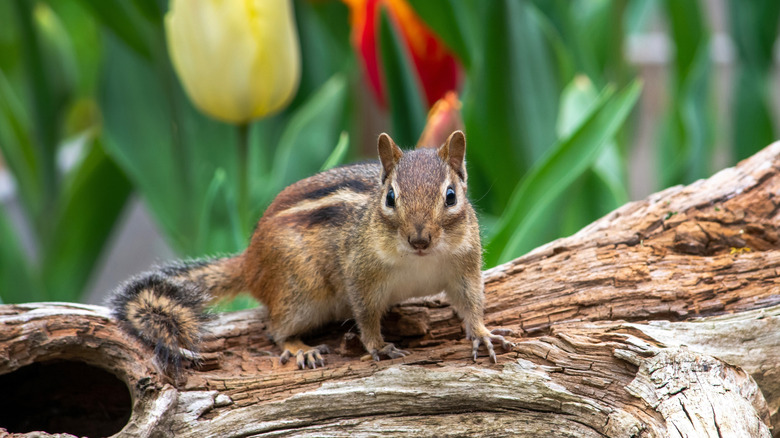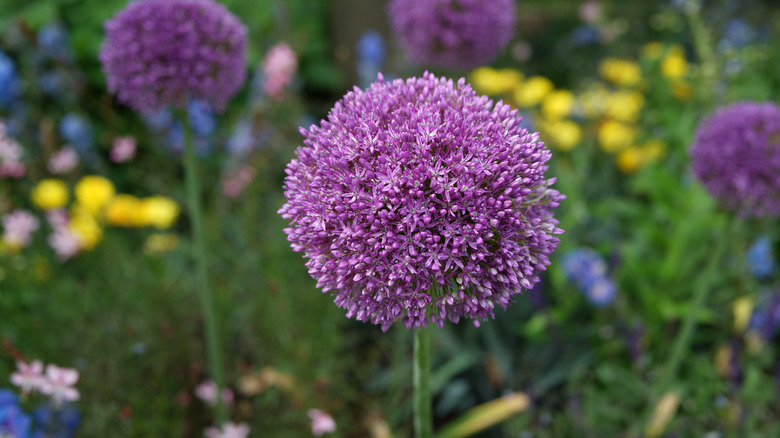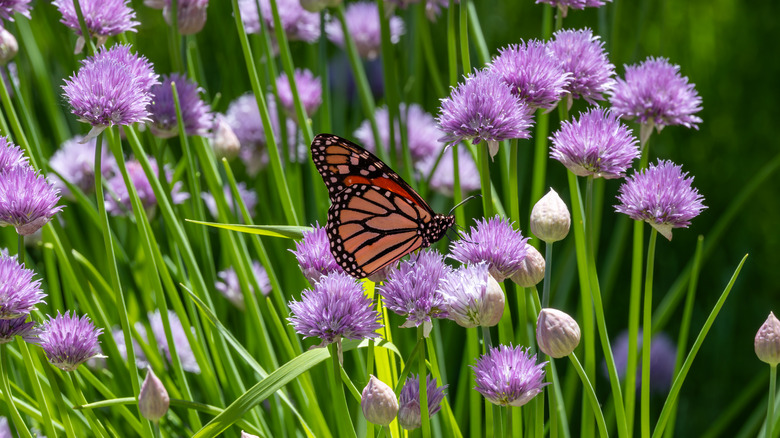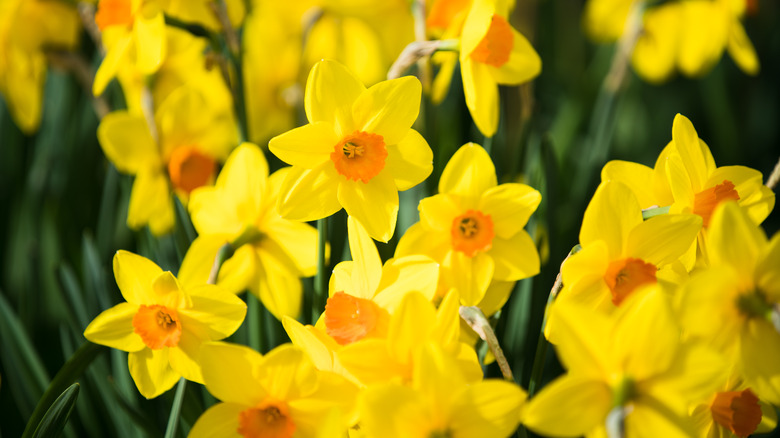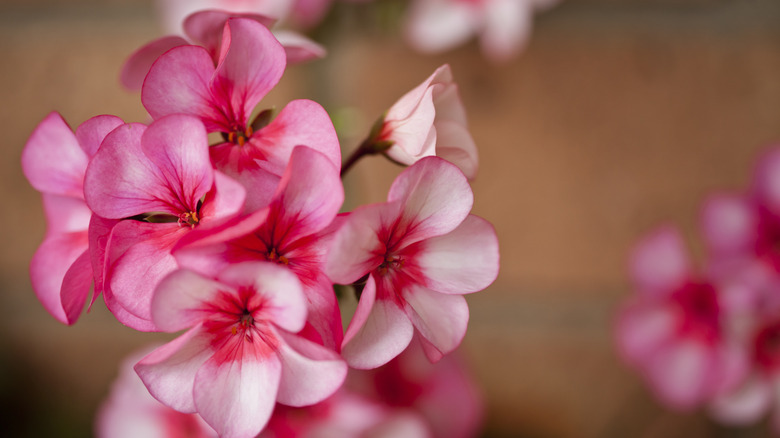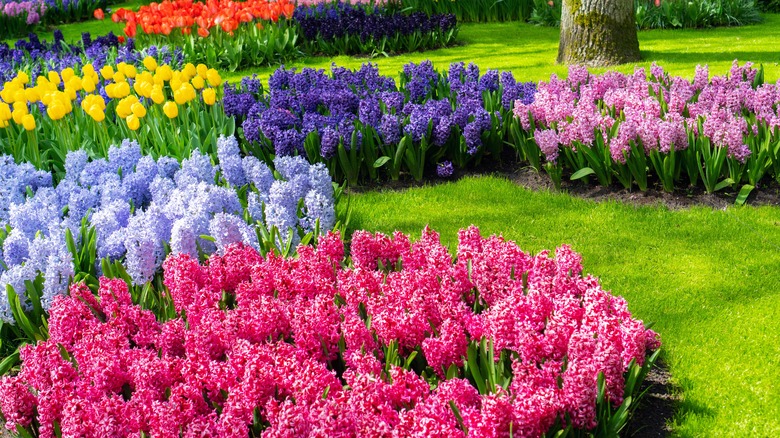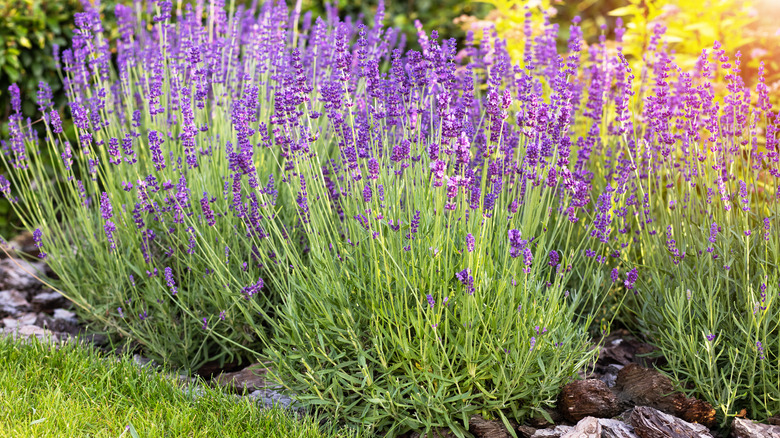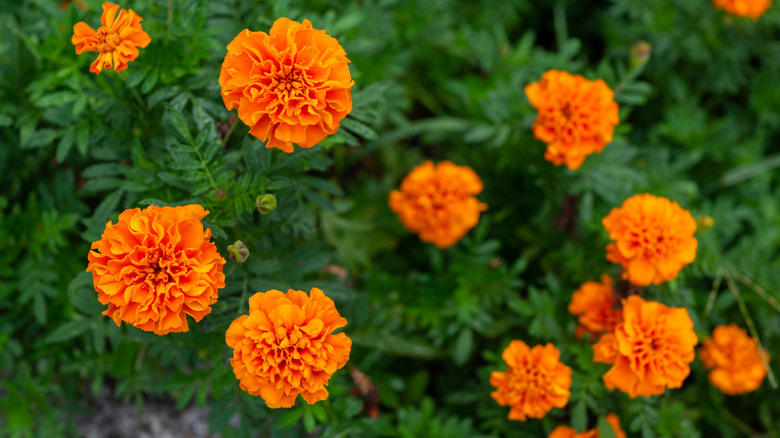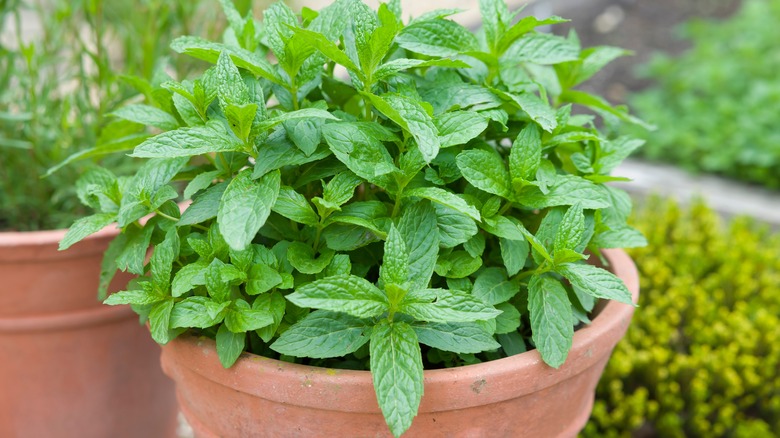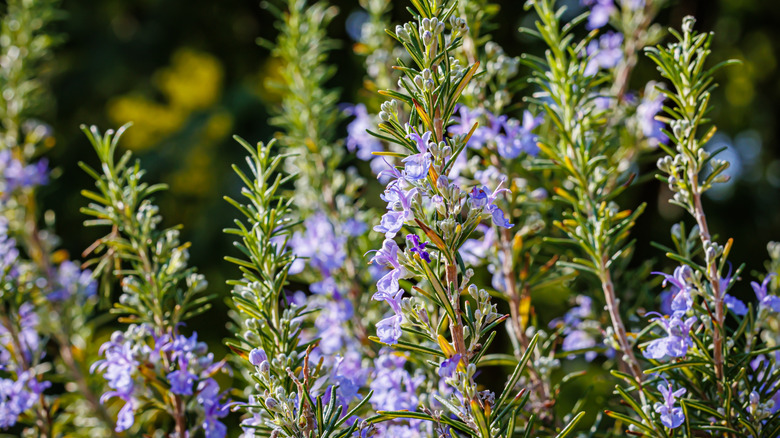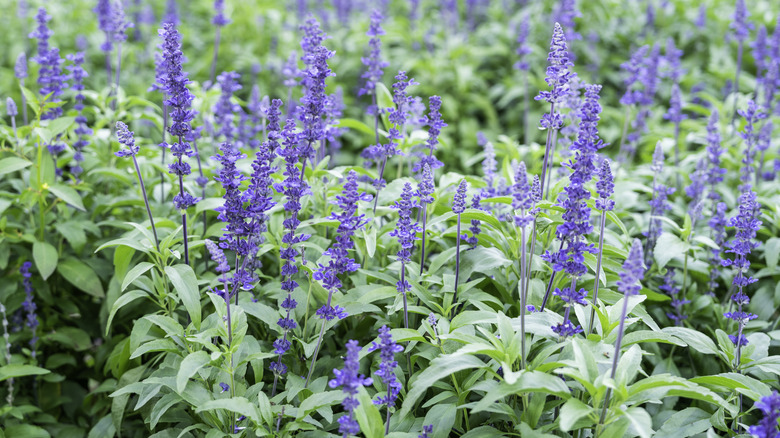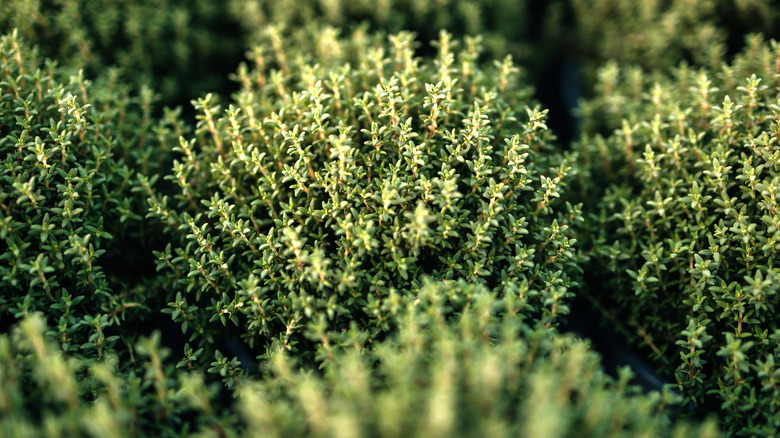11 Beautiful Plants That Can Help Keep Chipmunks Out Of Your Garden
Chipmunks are among some of the cutest forms of wildlife you might encounter in your outdoor spaces. Known for their notable tan and brown stripes, these small rodents belong to the same family as squirrels. If you live anywhere in the eastern U.S., you're most likely to encounter the eastern chipmunk. These creatures can be fun to watch — until you see them stuffing their cheeks with items from your garden.
As with other forms of wildlife that might come into your backyard, such as squirrels, rabbits, and deer, chipmunks can be challenging to control. By using a combination of chipmunk deterrents and exclusion methods, you may be able to help manage them before they destroy your garden. A variety of different plants might be helpful in deterring chipmunks due to having strong scents these rodents tend to stay away from, and they will also add visual interest to your space. Just keep in mind that these may not repel chipmunks entirely, and that the process might require a bit of trial and error. For the best results, try planting chipmunk-deterring plants near the plants they are known to eat, such as leafy vegetables.
Ornamental onions
Giant ornamental onions (Allium giganteum) are members of the same plant family as edible onions. The plant's bulbs and leaves can emit a strong oniony odor that chipmunks dislike. These flowering plants are perhaps best known for their large and beautiful purple blooms, which make a beautiful display in a home garden. You can also feel good knowing that by planting alliums to deter chipmunks, you'll also be supporting pollinators such as bees, thanks to the plants' nectar-producing flowers. Be aware that giant ornamental onions can grow several feet tall, and they do best in USDA Hardiness Zones 4 to 8.
Chives
Like alliums, chives (Allium schoenoprasum) belong to the onion family and have strong-smelling components that chipmunks and other wildlife often keep away from. As a bonus, these perennials produce pretty pinkish to lavender flowers that can make a nice addition to the garden. Chives can grow up to 12 inches tall, and they love full sun. They are indicated for hardiness zones 3 to 9, and they are considered low-maintenance. Chives also make a great border for a cottagecore garden if you're interested in that style.
Daffodils
Daffodils (Narcissus) are one type of flowering bulb that is said to be a turnoff for chipmunks as well as other ground-digging rodents like squirrels. At the same time, chipmunks and squirrels love tulip bulbs and can quickly cause a lot of damage to those flowers. As such, some people like to plant daffodils next to tulips to help mask the smell and possibly keep chipmunks away. Daffodils are primarily known for their pretty yellow flowers, but they are also available in orange, pink, and white, too. Plant them in zones 3 to 8.
Geraniums
Geraniums (Pelargonium) are another option you can choose to plant near other chipmunk-vulnerable plants due to the animals' purported dislike of the strong fragrance of the flowers. These popular annuals are available in a wide range of colors, including red, orange, pink, and white, and they thrive in well-draining soil with at least 8 hours of sun per day. Once these beautiful flowers are established either in the ground or in a container garden, they can continue thriving with little maintenance. Geraniums may be planted as annuals, or they are cold-hardy in zones 10 to 11.
Hyacinths
Known for their large fragrant flowers, hyacinths (Hyacinthus orientalis) are among the flower bulbs that chipmunks usually steer clear of. Plant these flowers in an area with full sun and well-draining soil to ensure their full growing potential of up to 12 inches tall. The one major caveat is that while chipmunks don't like the flowers, hyacinths are also toxic to humans, cats, dogs, and horses. Hyacinths are hardy in zones 4 to 8.
Lavender
While you might already appreciate the smell of lavender in other forms, lavender (Lavandula) plants are also a wonderful addition to any home garden. Not only can you easily grow lavender for an endless supply of dazzling purple flowers, but bees will appreciate them, too. On the flipside, chipmunks may steer clear of lavender due to the plant's strong scent. Before you plant lavender, know that it does best in climates with cooler summers. They're considered hardy in zones 5 to 9, and they prefer well-draining soil along with full sun.
Marigolds
Marigolds (Tagetes) are known for their gorgeous orange and yellow flowers. These strong-smelling options are purportedly among the flowers that chipmunks don't like. Marigolds are also considered resistant to other wildlife, such as deer, although they attract birds and butterflies. It's worth noting that some gardeners have reported that marigolds might not be completely safe from chipmunks, but the flowers are still not their favorites. They can be either perennials or annuals, depending on the species, but most garden marigolds are grown as annuals. For chipmunk control, consider planting in containers or along borders around your garden.
Mint
Mint is a popular garden herb that's relatively easy to plant. The aromatic plant produces small flowers that range in color from white to violet or blue. It does well in full sun in zones 3 to 10. As a bonus, chipmunks also purportedly do not care for the smell of mint. Just be aware that mint plants grow aggressively, so these are best grown in pots to help contain them. Container-grown mint can also grow taller with a gardening hack that doesn't cost a thing: vertical support.
Rosemary
If you're looking for other herbs to deter chipmunks, you might consider rosemary (Salvia rosmarinus). Some people use rosemary oil to help repel pests around their yards, and it has the added perk of adding beauty and function to your garden. When it flowers, this evergreen shrub boasts flowers that can be white, pink, or blue. It also does well in containers, and it emits a strong enough pine-like scent to purportedly deter both chipmunks and squirrels. Rosemary can survive in hardiness zones 7 to 10.
Sage
Sage (Salvia officinalis) is a woody-type herb that is known for its interesting fuzzy, double-sided leaves of varying shades of green. It also has a strong earthy aroma and can taste bitter, which are two features that chipmunks may not care for. Sage technically belongs to the mint family and is hardy in zones 4 to 8. Aside from its notable foliage and possible chipmunk-deterring qualities, sage can also produce pretty lavender-colored flowers in the summer that both you and pollinators will appreciate. Plant sage in well-draining soil in an area that receives full sun.
Thyme
If you love the smell or taste of thyme (Thymus), you should seriously consider growing this perennial herb. These plants have fragrant leaves, and it's these same woody odors that chipmunks might avoid. Thyme also helps deter rabbits and deer, if you're struggling with these animals in addition to chipmunks. Consider using thyme as border plants to help deter wildlife and to possibly attract pollinators with its tubular flowers that bloom in colors ranging from white to purple. To grow the best thyme in your garden, be aware that it's hardy in zones 5 to 9.
